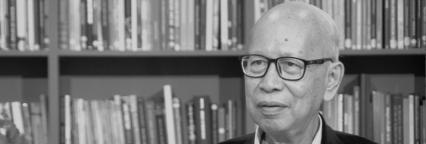 In this interview, IRC-Fellow Chetana Nagavajara speaks about his research for his highly acclaimed book Brecht and France (1994) as well as on his perspectives on literature, performance, and the interweaving of performance cultures and research cultures. Educated at Cambridge and Tübingen and now Professor Emeritus of German at Silpakorn University, Thailand, Nagavajara is a scholar of comparative literature with extensive experience in performance – in Thailand as well as in Germany, France, the U.K., and the USA. Reflecting on his past experiences at the International Research Center, Nagavajara demonstrates the enormous potential of research that crosses disciplinary and cultural boundaries.
In this interview, IRC-Fellow Chetana Nagavajara speaks about his research for his highly acclaimed book Brecht and France (1994) as well as on his perspectives on literature, performance, and the interweaving of performance cultures and research cultures. Educated at Cambridge and Tübingen and now Professor Emeritus of German at Silpakorn University, Thailand, Nagavajara is a scholar of comparative literature with extensive experience in performance – in Thailand as well as in Germany, France, the U.K., and the USA. Reflecting on his past experiences at the International Research Center, Nagavajara demonstrates the enormous potential of research that crosses disciplinary and cultural boundaries. 








